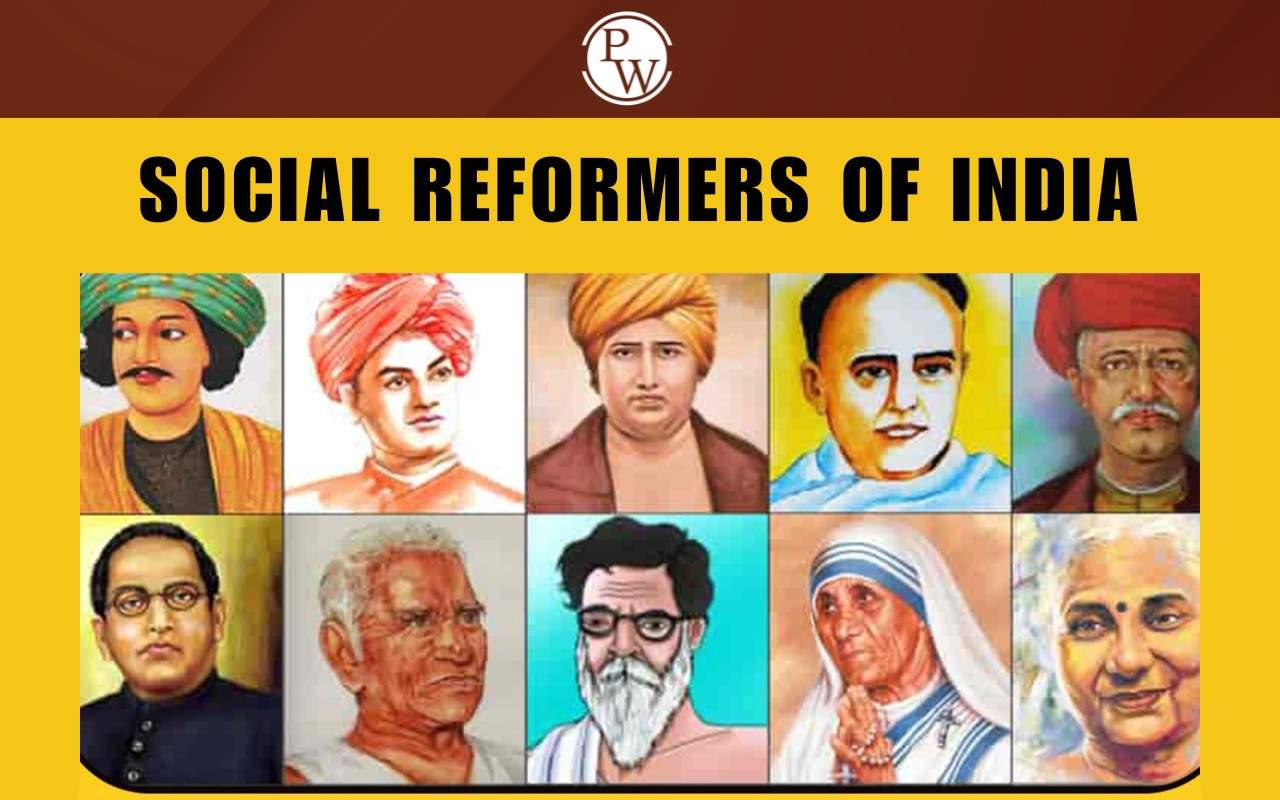

Citizenship of India is governed by the Indian Constitution ( Articles 5 to 11 ) and the Citizenship Act. Indian Citizenship acts as a legal bond between an individual and the Indian state, granting specific rights and responsibilities.
Citizenship of India is an important concept that has been news frequently and often asked in the exam. Aspirants must understand the constitutional provisions, how Indian citizenship can be acquired, the rights it grants, and how it can be lost. Keep reading to learn about it!What is Indian Citizenship?
Citizenship is a legal relationship between an individual and the state which confers certain rights and duties. Citizenship of India signifies full membership in the country, enabling participation in its democratic processes and taking advantage of benefits like social security, education, and healthcare. Individuals can acquire Indian citizenship either by birth, descent, registration, or naturalization, as outlined in the Constitution and the Citizenship Act of 1955. However, India has the provision of single citizenship only, meaning that a person can only be a citizen of India and cannot hold dual or multiple citizenship. Also Read – Difference Between Nationality and Citizenship in India, Definition and ExampleCitizenship Provisions in Indian Constitution
The Indian Constitution does not contain any elaborate or permanent provisions on the Citizenship of India. It simply defines who qualifies as a citizen at the commencement of the Constitution and empowers Parliament to regulate future citizenship matters under Articles 5 to 11 in Part II:| Citizenship Provisions in Indian Constitution | |
| Article No. | Subject Matter |
| 5 | Citizenship at the Commencement of the Constitution |
| 6 | Rights of citizenship of certain persons who have migrated to India from Pakistan |
| 7 | Rights of citizenship of certain migrants to Pakistan |
| 8 | Rights of citizenship of certain persons of Indian origin residing outside India |
| 9 | Persons voluntarily acquiring citizenship of a foreign State not to be citizens |
| 10 | Continuance of the rights of citizenship |
| 11 | Parliament to regulate the right of citizenship by law |
Citizenship Act 1955
The Citizenship Act of 1955 was enacted under the provisions of Article 11 and governs the acquisition, termination, and renunciation of Indian citizenship. The Act defines various ways through which an individual can acquire Indian citizenship , including birth, descent, registration, and naturalization. The Act also lays down provisions for the termination of Indian citizenship, naturalization procedures, and how Indian citizenship can be lost under specific conditions, such as by voluntary renunciation or acquisition of a foreign nationality.Acquisition of Citizenship of India
Indian citizenship can be acquired through the following five methods as per the Citizenship Act, 1955: 1. By Birth: Citizen born in India- Between 26th January 1950 and 1st July 1987 : Citizen by birth, regardless of parents' nationality.
- On or after 1st July 1987 : Citizen if at least one parent is an Indian citizen.
- On or after 3rd December 2004: Citizen if both parents are Indian citizens, or one is and the other is not an illegal migrant.
- Between 26th January 1950 and 10th December 1992 : Citizen if father was an Indian citizen at birth.
- On or after 10th December 1992: Citizen if either parent is an Indian citizen.
- From 3rd December 2004 , birth must be registered at an Indian consulate within a year, or with Central Government approval. After one year require permission from the Ministry of Home Affairs.
Amendments in Indian Citizenship Act 1955
Over the years, the Citizenship Act, 1955 has been amended several times to address emerging challenges. Here are some of the key amendments in the Citizenship Act 1955:- Citizenship (Amendment) Act 1985: It grants citizenship to persons of Indian origin from Bangladesh who entered Assam before January 1, 1966. Those arriving between January 1, 1966, and March 25, 1971, must register as foreigners and become citizens after ten years.
- Citizenship (Amendment) Act 1986: It made changes to Section 3 granted Indian citizenship to individuals born in India between January 26, 1950, and July 1, 1987, if one parent was an Indian citizen.
- Citizenship (Amendment) Act 1992: It made citizenship by descent gender-neutral, allowing individuals to acquire Indian citizenship through either parent. It also introduced provisions for registration at Indian consulates for certain individuals born abroad.
- Citizenship (Amendment) Act 2003: This amendment defined illegal migrants and made it clear that children born to illegal migrants after 2004 would not be eligible for Indian citizenship. It also allowed the creation of the National Register of Citizens (NRC) to identify legal citizens.
- Citizenship (Amendment) Act 2005: The 2005 Amendment enhanced benefits for Overseas Citizens of India (OCI), including lifelong visas and exemption from police reporting, though it excluded citizens from Pakistan and Bangladesh due to security concerns.
- Citizenship (Amendment) Act 2015: This amendment merged the OCI and Person of Indian Origin (PIO) schemes into one and made it easier for certain migrants to gain citizenship. It also required minor children to lose their OCI status if their parents renounced it.
- Citizenship (Amendment) Act 2019: The 2019 Amendment provided a path to citizenship for non-Muslim minorities from Afghanistan, Bangladesh, and Pakistan, who entered India before December 31, 2014.
Rights Granted to Citizens of India
The Citizens of India enjoy a range of fundamental rights under Part III of the Constitution, which includes:- Freedom of Profession (Article 15) : The right to practice any profession or carry on any occupation, trade, or business.
- Right to Equal Opportunities (Article 16) : The right to equality of opportunity in matters of public employment.
- Right to Freedom (Articles 19-22) : The rights to freedom of speech, assembly, movement, and protection from arbitrary arrest.
- Cultural and Educational Rights (Articles 29-30) : The rights to conserve one's language, culture, and establish educational institutions.
- Right to Vote and Contest in Elections : The right to participate in the democratic process by voting and taking part in the election.
Loss of Indian Citizenship
The Citizenship Act (1955) also provides for provisions under which one can lose their Indian Citizenship. These provisions are: Renunciation: An Indian citizen of full age and capacity can renounce their citizenship by making a declaration under Citizenship Rules, 2009. Once registered, they lose citizenship. When a person renounces their citizenship, their minor children also lose it, but they can reclaim it upon turning 18. Termination: If an Indian citizen voluntarily acquires another country's citizenship, their Indian citizenship automatically ends. This does not apply during a war in which India is engaged. Deprivation: The Central Government can revoke Indian citizenship under these conditions:- Obtained by fraud.
- Disloyalty to the Constitution.
- Trading or communicating with the enemy during a war.
- Imprisoned abroad for two years within five years of naturalization.
- Lived outside India for seven continuous years.
UPSC Questions on Indian Citizenship
UPSC Prelims 2021: With reference to India, consider the following statements:- There is only one citizenship and one domicile.
- A citizen by birth only can become the Head of State.
- A foreigner once granted citizenship cannot be deprived of it under any circumstances.
- 1 only
- 2 only
- 1 and 3
- 2 and 3
| UPSC Related Articles | ||
| Chief Justice of India | Mission Karmayogi | Tribunals in India |
| Parliament Sessions | Cooperative Federalism | Anti-Defection Law |
Citizenship of India FAQs
What are the four types of citizenship in India?
The four main types of Indian citizenship are acquired by birth, descent, registration, and naturalization.
What is the Indian Citizenship Act 1955?
The Indian Citizenship Act 1955 regulates the acquisition, renunciation, and termination of Indian citizenship, ensuring legal clarity on the status of individuals.
How to get Indian citizenship?
Indian citizenship can be acquired by birth, descent, registration, naturalisation, or incorporation of territory as per the Indian Citizenship Act 1955.
How Indian citizenship can be lost?
Citizenship can be lost through renunciation, termination, or deprivation under the provisions of the Indian Citizenship Act 1955.
What are the amendments in the Citizenship Act 1955?
Key amendments include the 1986 restriction on citizenship by birth, the 2003 introduction of OCI, and the 2019 Citizenship Amendment Act.
Talk to a counsellorHave doubts? Our support team will be happy to assist you!

Free Learning Resources
PW Books
Notes (Class 10-12)
PW Study Materials
Notes (Class 6-9)
Ncert Solutions
Govt Exams
Class 6th to 12th Online Courses
Govt Job Exams Courses
UPSC Coaching
Defence Exam Coaching
Gate Exam Coaching
Other Exams
Know about Physics Wallah
Physics Wallah is an Indian edtech platform that provides accessible & comprehensive learning experiences to students from Class 6th to postgraduate level. We also provide extensive NCERT solutions, sample paper, NEET, JEE Mains, BITSAT previous year papers & more such resources to students. Physics Wallah also caters to over 3.5 million registered students and over 78 lakh+ Youtube subscribers with 4.8 rating on its app.
We Stand Out because
We provide students with intensive courses with India’s qualified & experienced faculties & mentors. PW strives to make the learning experience comprehensive and accessible for students of all sections of society. We believe in empowering every single student who couldn't dream of a good career in engineering and medical field earlier.
Our Key Focus Areas
Physics Wallah's main focus is to make the learning experience as economical as possible for all students. With our affordable courses like Lakshya, Udaan and Arjuna and many others, we have been able to provide a platform for lakhs of aspirants. From providing Chemistry, Maths, Physics formula to giving e-books of eminent authors like RD Sharma, RS Aggarwal and Lakhmir Singh, PW focuses on every single student's need for preparation.
What Makes Us Different
Physics Wallah strives to develop a comprehensive pedagogical structure for students, where they get a state-of-the-art learning experience with study material and resources. Apart from catering students preparing for JEE Mains and NEET, PW also provides study material for each state board like Uttar Pradesh, Bihar, and others
Copyright © 2025 Physicswallah Limited All rights reserved.











